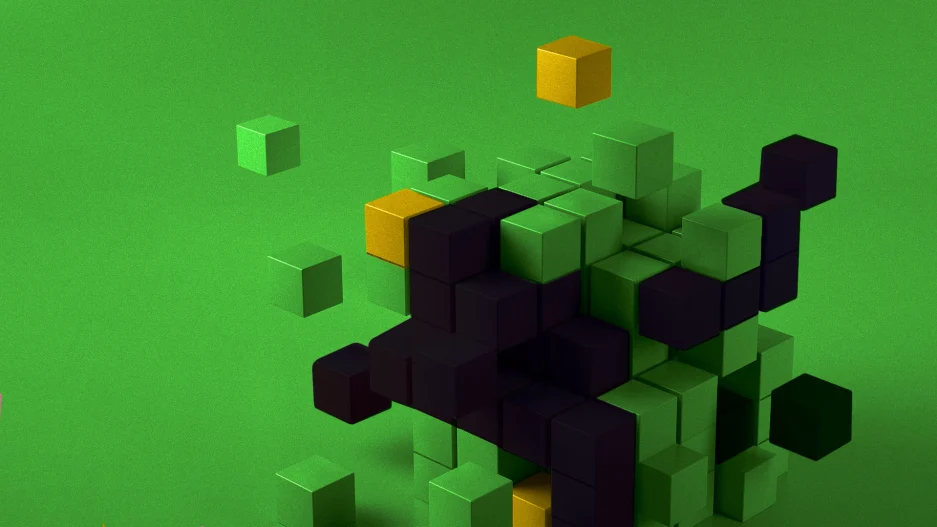- | 3:38 pm
In defense of Wordle and joining harmless bandwagons in 2022

My first thought upon finding out about the Ice Bucket Challenge several years ago was that I wished I had my life anywhere near together enough that I happened to own a bucket.
Now that I am indeed stable enough to be bucket-status, it’s unfortunately too late. Not just for that particular craze, but for pretty much all of them. Shared moments of ubiquitous harmless fun are rare these days, and when they do crop up, they tend to be in the form of things like Tik Tok sea shanties, which would strain both my vocal abilities and dignity.
So, it was with great joy and curiosity last week that I joined the Green Square Brigade of Wordle enthusiasts.
Wordle, to anyone who has somehow not yet encountered it, is a digital word game that arrived last October and exploded in popularity in the final days of 2021. It’s essentially a solo Hangman, without the macabre specter of death hanging over it, drawing on deductive reasoning, process of elimination, and breadth of vocabulary. Wordle is just difficult enough to make debt-laden English majors feel chuffed with themselves for winning in only three turns.
As clever as its general concept is, however, the main drivers of Wordle’s success seem to be that a) there’s only one puzzle a day and no back catalog, leaving hooked players craving more, and perhaps more importantly, that b) its shareability function is distinct and eye-catching. Click the share button after you finish playing, and your clipboard now contains not only your score, but a color-coded block summary of your gameplay, perfect for pasting on the social medium of your choice.
When someone shares their Wordle score, they’re not just bragging about how well they did, or lamenting the difficulty of that day’s puzzle, they’re also reveling in the ubiquity itself. That thing absolutely everyone seems to be doing? Buckle up, bitches—I’m doing it too!
This is where the backlash kicks in, and nothing can be a proper trend without a pronounced and robust backlash.
It’s annoying to face ubiquity from the outside. There’s an almost oppressive aspect to the way a fad operates on social media, making it feel as though all of your friends and favorite comedians are all tapping you on the shoulder, one by one, to say precisely the same thing. It’s practically Matrixian. Suspicions mount—there’s always the chance that this is a guerrilla marketing stunt and everyone is gleefully, voluntarily, diving into a promotional pool for Pepsi or some other megabrand. Probably, it all ends in your data being (further!) stolen.
But the chore of having to find out what the hell everybody is tweeting about now feels more like a privilege at this particular moment than usual.
Wordle’s plunge into critical mass happened to fall on the same week as the anniversary of the Capitol riots and the attendant discourse. Each of those green square-filled tweets also seemed to land right above or below another frenzied dispatch about how the omicron surge in the U.S. is continuing to break records in daily COVID cases. This moment isn’t merely divisive; it’s hyperfractured even within our own in-groups.
Pro-vaccine, pro-mask people have a lot of different ideas about what exactly must be done to combat the virus: what isn’t enough, what is too much, and who is being overlooked in either scenario. And people who agree that the January 6 attack did actually happen and was, in fact, Bad for Democracy, argue about whether their cohort is making too big a deal about it, or making a big deal about it in the wrong way.
The Capitol riots and the anti-vaccine movement both demonstrate how hopping on a bandwagon can go wrong, and how there never seems to be a bandwagon heading in the right direction on issues of grave importance. All of which is why, in such alienating times, it’s nice to find a massive intersectional connection on something as frivolous as a daily word game.
There is nothing inherently political about Wordle, beyond it possibly being dismissed as a game for “elites.” Nobody is sticking it to anybody else by either playing it or not playing it. And best of all, it’s not here to stay. While the game itself may linger online for years, the phenomenon of sharing one’s score is destined to flame out quickly, as these things tend to do, only cropping up again as an end-of-the-year listicle item. Remember when everyone was tweeting about Wordle?
This moment is the sweet spot for embracing our new, non-problematic Tiger King; that thing everyone did during the pandemic to be a part of something, and to feel a little less alone. Hop aboard this perfectly pleasant bandwagon to nowhere, before it’s too late.
































